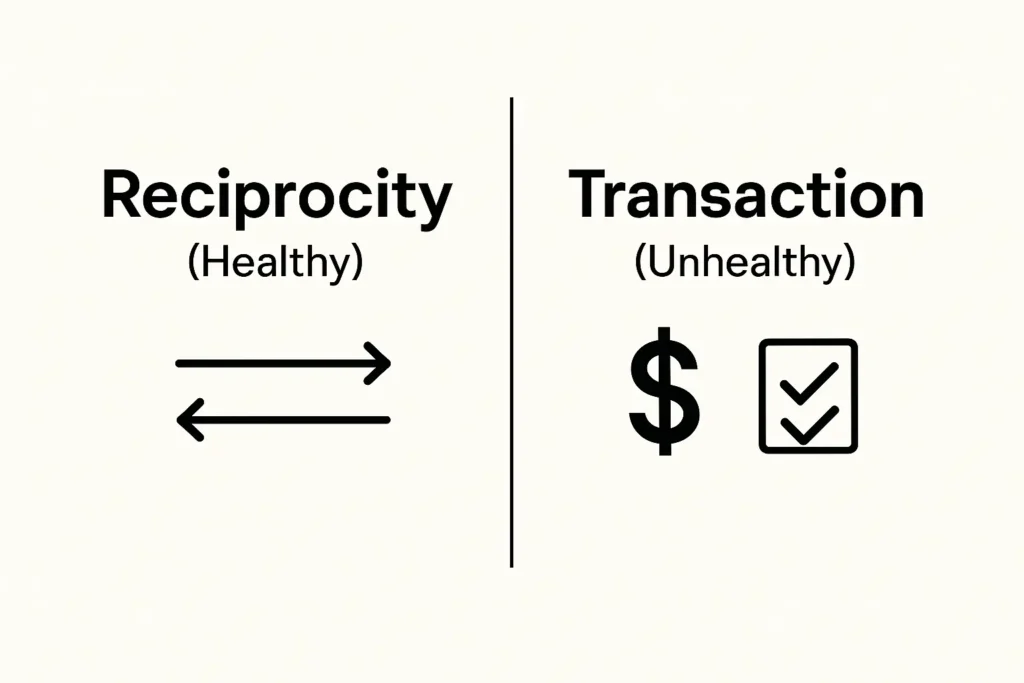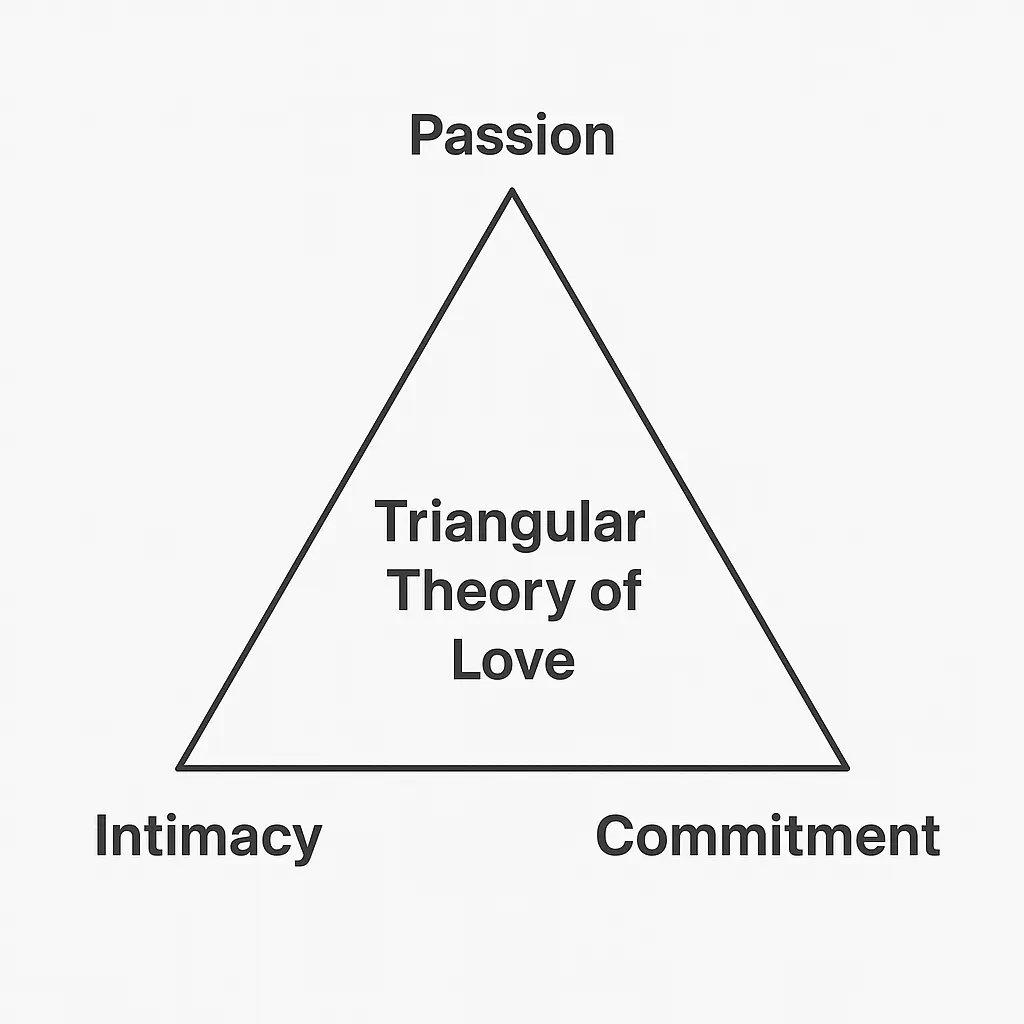
Table of Contents
Introduction: Why Your Relationship Feels Like a Business Deal
Desire isn’t complicated. It’s raw. It’s messy. It’s the magnetic pull that makes you glance at your partner across the room and imagine tearing their clothes off right then and there. It’s the fire that turns ordinary moments into something alive and electric.
But here’s the problem—more and more relationships aren’t built on that spark anymore. They’re built on deals. Somewhere along the way, love quietly gets converted into transactions. Affection becomes rationed. Sex turns into a reward system. Conversations shift from intimacy and laughter to who owes what, who gave more, and who’s falling short. You can feel it the moment it sets in. What once felt exciting now feels like accounting.
It’s not just “how relationships go.” It’s not just the natural decline of passion. It’s the result of a deeper psychological shift: when desire becomes a transaction, intimacy suffocates. You can still live together. You can still function. You can still tick all the boxes of a “successful” couple. But the soul of the relationship—the spark, the warmth, the vulnerability—is already gone.
This is the silent killer of intimacy, and the psychology behind it is both fascinating and brutal.
What Is a Transactional Relationship? (Definition + Psychology)

At first glance, transactional relationships don’t look broken. In fact, they look responsible. Partners trade things back and forth, cover duties, and exchange affection for effort. And to some degree, that’s what all healthy relationships need: reciprocity. Without it, one person ends up drained and resentful.
But transactional love goes beyond reciprocity. It’s when the entire relationship is grounded in the constant question: What am I getting out of this? Every gesture is measured. Every sacrifice comes with an invisible invoice. If I do this for you, then you should give me that. If I show up here, then you’d better show up there.
Subscribe to The Honest Masculine Newsletter
Psychologists call this the social exchange theory, where people weigh costs and benefits like they’re balancing a checkbook. It’s fine when you’re negotiating a business deal, but when that mindset seeps into intimacy, everything changes. You’re no longer kissing because you want to. You’re kissing because it keeps the peace. You’re no longer having sex out of raw desire. You’re having sex because it’s “owed.” Love becomes currency, not connection.
And the paradox is cruel. The more you treat intimacy like a transaction, the less valuable it becomes.
The Link Between Desire and Intimacy (Why Emotion Fuels Attraction)

We like to think desire is all about bodies colliding. Chemistry. Attraction. Hormones firing. And yes, biology plays its part, but the deeper truth is that desire is heavily tied to intimacy.
A study published in the Journal of Social and Personal Relationships followed couples daily and found that emotional closeness was the biggest spark for sexual desire—especially for women. Passion wasn’t about novelty or wild techniques; it was about connection. Couples who felt emotionally safe with each other reported stronger desire, and when that intimacy deepened, desire followed.
Desire and intimacy feed each other. Intimacy makes sex more meaningful. Sex, when rooted in intimacy, deepens the connection. But when that cycle breaks, the opposite happens. Sex starts feeling like performance, obligation, or worse—like payment. And once sex feels like duty, desire quietly packs its bags and leaves.
That’s why so many couples who have “regular sex” still feel like something is missing. It’s not about frequency. It’s about meaning.
Why Transactional Dynamics Kill Intimacy (The Psychology Explained)
Here’s where psychology cuts deep. The human brain is wired to crave meaning, not contracts. When relationships slip into transactional mode, several psychological effects come into play, and together they smother desire.
The first is the collapse of trust. Social exchange theory works for short-term interactions, but long-term intimacy thrives on surrender. When partners start keeping score, trust evaporates. If you feel like affection only comes when you’ve earned it, you stop believing in unconditional love. And the absence of trust makes vulnerability impossible.
The second problem comes from the self-expansion theory, which says healthy relationships expand our sense of self. They make us feel alive, challenged, and supported in becoming more than we were yesterday. But transactional dynamics stagnate this process. You stop growing together. You stop seeing the relationship as a place of expansion and start seeing it as a ledger. Stagnation is the death of passion.
Then there’s limerence—that early stage of obsession and infatuation that gives new relationships their intoxicating charge. Limerence thrives on unpredictability, on not knowing exactly what will happen next. But in a transactional relationship, unpredictability dies. You already know the terms. You know what’s required to “earn” affection. And once mystery dies, desire soon follows.
Finally, there’s the brutal reality of conditional love. We all crave unconditional acceptance, at least from our closest person. But in a transactional setup, affection feels conditional on what you’ve given or done. That kind of insecurity corrodes intimacy from the inside out. You don’t feel loved—you feel tolerated.
Signs You’re in a Transactional Relationship (Without Realizing It)
Most people don’t realize when they’ve slid into transactional love. It sneaks in gradually. At first it feels like balance, then like responsibility, and before long, intimacy has been replaced with performance.
One of the clearest signs is that affection feels conditional. You notice you only receive warmth or attention when you’ve delivered on some task or expectation. Compliments, hugs, even moments of closeness seem earned, not freely given.
Another telltale sign is when sex shifts from spontaneous to strategic. Instead of desire, it’s a bargaining chip. Instead of closeness, it’s a way to resolve tension or reward behavior. If you’ve ever felt like sex was used as leverage—or if you’ve used it that way yourself—you’re living inside a transactional script.
Conversations change too. They stop being about shared dreams or raw honesty and start revolving around duties, logistics, and obligations. Instead of “I want you,” it’s “Did you pay that bill?” Instead of “How are you feeling?” it’s “Don’t forget the kids tomorrow.” Slowly, the emotional connection drains out of everyday interactions.
The result is a constant sense of unmet needs. You feel unseen, unappreciated, and yet somehow indebted. It’s the worst of both worlds—you’re giving without receiving and receiving without feeling fulfilled. That’s when you start to feel less like lovers and more like roommates running a joint business.
The Long-Term Cost of Transactional Love

You can survive in a transactional relationship. Plenty of couples do. But survival isn’t the same as living. The long-term costs are devastating.
Resentment creeps in slowly, like mold in the walls. Every unbalanced trade, every forgotten favor, every withheld affection becomes another log on the fire of bitterness. Even if you don’t fight, you feel the tension. It simmers in silence.
Sex, which should be the heartbeat of desire, dries up. What began as duty sex becomes no sex at all. Once intimacy feels obligatory, it ceases to feel desirable. And when desire dies, the relationship loses one of its most powerful bonding forces.
Emotional distance grows wider with each passing year. The person who used to be your safe space becomes a source of stress. You stop confiding in them. You stop being vulnerable. And once vulnerability is gone, so is intimacy.
The mental health fallout is brutal. A longitudinal study over ten years found that intimacy directly reduces symptoms of depression. Couples who maintained strong emotional connection were not only happier but healthier. The inverse is also true: the absence of intimacy makes partners more vulnerable to loneliness, sadness, and despair.
Transactional love doesn’t just starve passion. It corrodes the foundation of the relationship itself.
Why We Fall Into Transactional Patterns (Modern Dating & Culture)
So why do so many relationships fall into this trap? It’s not always malice. It’s often culture.
Modern dating has become a marketplace. Apps reduce people to profiles. Matches are judged like products. You’re swiping not for intimacy, but for perceived value. The whole system trains us to evaluate people like assets, not humans. And when that mindset carries into relationships, intimacy has little chance.
Culture glorifies the idea of the “high-value” relationship, where worth is measured in roles. He must provide. She must perform. He must protect. She must reward. These scripts turn relationships into negotiations instead of connections.
Add in the fear of vulnerability and you’ve got the perfect storm. Letting someone in emotionally is terrifying, so people hide behind trades. It feels safer to give and get than to risk being fully seen and possibly rejected.
Finally, there’s the ancient undercurrent of hypergamy—the tendency for women to seek security and for men to seek roles as providers. In modern society, those instincts often clash with the need for emotional intimacy. The result is relationships that feel more like contracts than connections.
How to Rebuild Intimacy and Escape the Transaction Trap

Here’s the good news: intimacy isn’t gone forever. It can be rebuilt—but only if both partners are willing to abandon the transaction and return to connection.
The first step is dropping the scorecard. You can’t build intimacy while keeping track of who owes what. Love is not accounting. It’s giving without demand for immediate return. When you shift from “What did I get?” to “What can I give freely?” the walls start to crack.
Next comes reintroducing play and spontaneity. Desire thrives on unpredictability. Do something unexpected. Surprise your partner. Break the monotony of obligation with moments that feel alive and unplanned.
Then there’s disclosure. Real intimacy requires vulnerability. That means sharing more than logistics or frustrations—it means talking about fears, desires, dreams, and even insecurities. Psychologists call this the social penetration theory—the idea that relationships deepen as partners reveal more of themselves. If your relationship feels shallow, chances are you’ve stopped sharing at that level.
Growth also matters. Couples who grow together, who take on new challenges and adventures, keep intimacy alive. Whether it’s learning something new, traveling, or pursuing a goal together, growth expands the relationship beyond transactions.
And sex—perhaps the most important shift of all—needs to be reframed. Stop treating it as currency. Bring it back to being a shared experience of connection. When sex is rooted in obligation, it’s lifeless. When it’s rooted in play, intimacy, and vulnerability, it reignites the very spark that made you want each other in the first place.
Conclusion: Love or Transaction—Your Choice
Here’s the hard truth: when desire becomes a transaction, intimacy dies. And once intimacy dies, the relationship isn’t really alive anymore.
Modern culture sells us the lie that love should be a marketplace. That we should trade value, negotiate roles, and measure worth like assets. But intimacy isn’t built on contracts. It’s built on trust, vulnerability, and unconditional connection.
If you want a relationship that lasts, one that still burns after years together, you have to resist the trap of transaction. You have to strip away the negotiations and rediscover the raw, uncalculated connection that made you fall in love in the first place.
Because the truth is simple: intimacy and desire don’t thrive in deals. They thrive in connection.
So ask yourself—are you in love, or are you in a transaction?
Final Word
If this article hit you in the gut, don’t ignore it. The cracks you feel are real. The distance you sense isn’t just in your head.
Start asking better questions. Start having harder conversations. And if you’re ready to go deeper into the truths about intimacy, masculinity, and rebuilding connection, subscribe to The Honest Masculine Newsletter. Every week, I share the raw, unfiltered truths modern men need to hear about relationships, purpose, and reclaiming what actually matters.
Because life is too short to live like business partners when you could be lovers.

If you like my content? Let me know by Buying me a coffee. Thanks 🙂
👉If this resonated, you’ll want more.
Join My Newsletter The Honest Masculine weekly newsletter — and you’ll get instant access to my (Masculine_Future_Manifesto). No fluff, no filters. Just raw truths about breakups, masculinity, fatherhood, and the quiet battles men face alone.
It’s for the man who’s done pretending.



